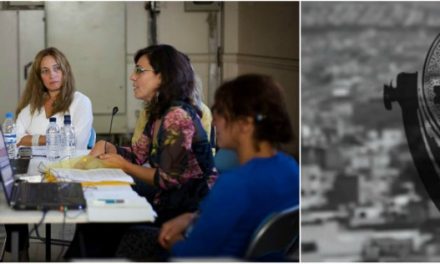Sculptor Vassilis Nikolaou presents his exhibition Bodies Of Spirit, Matter and Time at Technohoros Art Gallery. Spanning almost four decades of artistic creation, his retrospective comprises a remarkably diverse body of work.
Nikolaou took his first steps as a sculptor in the early 80s, drawing inspiration from classical art. Experimenting originally with materials such as clay, plaster, and bronze and particularly concerned with proportion, poise and the idealized perfection of the human body, he created sensuous, flawless, smooth human bodies.
His growing interest in stones prompts a shift in his artistic approach. His game-changing technique consists in incorporating this new element into his art. This new technique, requiring countless hours of hard work, leads to the creation of vibrant, subtle and graceful figures.

Vassilis Nikolaou was born in Ioannina in 1957. He studied Drawing and Painting at the Athens School of Fine Arts (1977-1983) under Dimitris Mytaras and Lefteris Kanakakis and Sculpture under Professor George Nicolaides and Theodoros Papagiannis. He also pursued theoretical studies in the History of Art, History of Architecture and Rhythmology, Introduction to Aesthetics, Theory of Art and Philosophy, and for several years taught the subject of Visual Arts in Secondary Education. His works are in private collections in Greece and abroad. He lives and works in Athens.
Vassilis Nikolaou shares with Greek News Agenda* his self-explorative path through his artistic journey.

You consciously picked sculpture as a means of self-expression. What led you to this path?
Some argue that sculpture, this peculiar joy of sight and touch, is ultimately doomed. That it is an art form that tends to die out. I think otherwise. I am very interested in the great heritage of sculpture in our country. Since I was a child, I was strongly drawn to the art of sculpture. I felt it was at the core of my inclination, that it deeply concerned me. I believed it was a heritage I had to serve. I studied Sculpture at the Athens School of Fine Arts as well as plaster and bronze casting. Since then, my experience and knowledge led me first to copper and later to the primordial “form” of the stone, a step that could take all my ideas into a purely personal work.
How do different kinds of materials determine artwork in sculpture?
In sculpture, the research of the material is decisive. Movements and trends are constantly revised depending on the material the artist chooses to express himself. Plasticity is what produces the final form in sculpture. I use each stone leaving little traces of its previous life in a way that appears in an organic union of past and present. What remains of this process is the work of art itself.

What prompted your interest in stones and how did you come up with its incorporation in plaster?
I try to contrast the deceptive radiance of the ephemeral with the timelessness. The simplicity of the Cycladic figurines, these sculptures of silence… These archaeological memories deeply affect me. It is the sense of a hovering presence long gone but their sound, the remarkable power and simplicity is still there. As far as I am concerned, through the refinement of a primordial material such as natural stone and its incorporation into plaster, a particular perspective is achieved. A perspective that alludes to an allegorical poetic atmosphere in a paradoxical and multifaceted way.
How do nature and time define your work?
I draw inspiration from the sculptures nature creates itself. I choose stones from their own processed material, based on the forms imprinted in their textures and their forms that evoke a tender or otherworldly sense. I am particularly interested in the ensemble I create with my own intervention to develop a dialogue between materials that contain processed memories and materials that are transformed into shapes and colors that allude to timeless human conditions.

In what way is personal experience embodied in your sculptures?
I believe that a sculptor’s work must be a true expression of his or her creative personality to be authentic. In my works, I try to achieve plasticity and simplicity by incorporating my philosophical viewpoint into the material. It is an expression of hidden ideals and is naturally inspired by my life, my sensibilities as an artist, and my observations of the world around me. My aim is a universal condition. The purpose of this effort is to leave the viewer completely free to explore the underlying reason for my art. The power of sculpture, compared with other arts, is that it magnifies the human soul through touch in a way that it becomes part of the viewer’s own body.
*Interview by Dora Trogadi (Intro image: Figure in Bonds)
TAGS: ARTS












